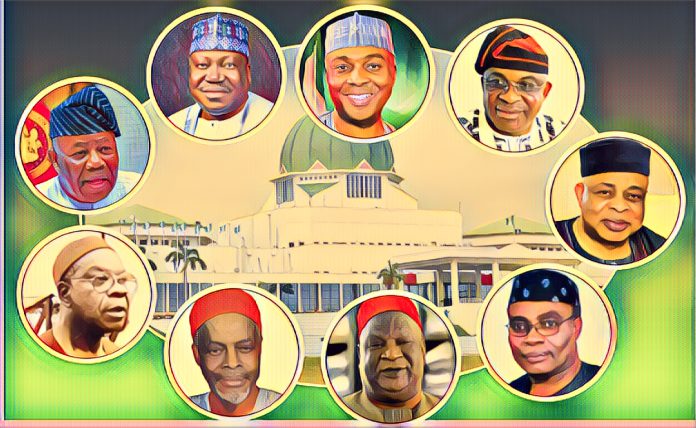Since the advent of democratic governance in 1999, the National Assembly of Nigeria has enacted over 270 laws aimed at addressing critical challenges in the nation’s economy. However, the implementation of these laws has faced significant obstacles, attributed largely to the legislative body’s failure to effectively exercise its oversight and supervisory functions. Despite hosting 3,283 legislators across seven legislative terms and spending approximately N3 trillion on operations over the last 14 years, the economic sectors, including agriculture, electricity, revenue generation, and many others, continue to suffer from inadequate legislative scrutiny.
The National Assembly, constitutionally empowered to conduct thorough checks on government projects and programs, has struggled with operational issues such as insufficient funding for oversight activities. Budgetary allocations to the Assembly have fluctuated over the years, with notable increases in recent budgets, yet controversies have arisen over legislators’ reliance on agencies for oversight funding, potentially compromising their responsibilities.
Civil Society Organizations (CSOs) and economic experts have voiced concerns over the management of Nigeria’s escalating debt, which has reached a staggering N107.9 trillion. Criticism has been directed towards the National Assembly’s swift approval of loans with minimal evidence of their impact on development. Furthermore, the lack of accountability for significant financial decisions, such as the removal of fuel subsidies and the handling of loans from international bodies like the IMF, has prompted calls for a more rigorous exercise of the Assembly’s oversight functions.
The Debt Management Office’s revelation of Nigeria’s total public debt underscores the urgency of these concerns, highlighting the necessity for the National Assembly to scrutinize and impose sanctions for loan mismanagement more effectively. Despite the legislative body’s constitutional power to sanction the executive for breaches, there has been a notable lack of action in ensuring compliance with laws critical to economic revival.
The past leadership of the National Assembly has acknowledged the challenges faced in executing their constitutional duties, citing limitations in enforcing compliance and the disproportionate focus on the legislature compared to the executive arm of government. This acknowledgment points to a broader issue of systemic weaknesses within the legislative framework that impedes effective governance and economic development.
Throughout its various tenures, the National Assembly has passed numerous bills aimed at stimulating the economy, enhancing accountability, and promoting good governance. However, the consistent failure to ensure the effective implementation of these laws signals a deeper issue within the legislative process. Critics argue that this failure not only frustrates efforts to revive the economy but also diminishes public trust in the legislative body’s ability to act in the nation’s best interest.
The calls for the National Assembly to enhance its oversight functions and take a more proactive role in managing the country’s economic and legislative affairs are growing louder. With the escalating debt burden threatening to plunge millions more Nigerians into poverty and unemployment, the need for decisive legislative action has never been more critical. As Nigeria faces these challenges, the effectiveness of its legislative body in safeguarding the economy and ensuring the welfare of its citizens remains a pivotal concern for its future development and stability.
In conclusion, the National Assembly’s struggle to fulfill its oversight responsibilities has had profound implications for Nigeria’s economic health and governance quality. The continuous enactment of laws without stringent enforcement mechanisms, coupled with a lack of accountability for financial mismanagement, poses significant risks to the nation’s economic sustainability. For Nigeria to achieve its economic potential and ensure a prosperous future for its citizens, a reinvigorated, transparent, and accountable legislative process is imperative. This requires not only a commitment to rigorous oversight but also a reevaluation of the legislative framework to empower the National Assembly to effectively carry out its constitutional duties.



